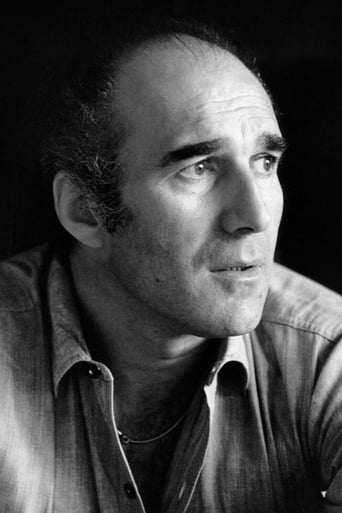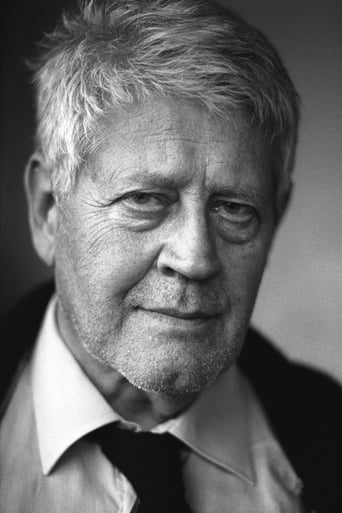e-70733
Both the editing and the soundtrack display the avant-garde art idea of a young film maker. However, this slightly conservative story clearly does not support such a strong desire for expression.
The mainly reason of current situation probably is that Leos Carax, the director of the film, didn't figure out how to expertly combine a commercial script with private style during that time. Therefore, though some independent parts is amazing and outstanding, the final result is somehow a bit out of control.
Red-Barracuda
This second film by Leos Carax is one which continued his focus on romance between alienated youth. It is a more expansive film than the earlier Boy Meets Girl (1984) but is overall a little less satisfying. More than any of his other films, this one plays around with characters and motives of genre cinema. In this case, we have a heist plot as the basis for what is otherwise typical Carax material. The McGuffin is a sexually transmitted virus that effects people who engage in sex with no emotional involvement. A serum which can cure the disease is locked away in a high security government building. Marc, a gangster in deep debt enlists the services of Alex the teenage son of one of his friends to steal the precious drug. Alex falls in love with Marc's lover Anna.In all honesty, the crime story was dealt with in a very half-hearted manner. I guess when you consider that the virus is of such an absurdly whimsical nature it's not so surprising that it's not exactly taken very seriously. Like all the other Carax films, you really have to get on board with his very cinematic style to have any chance of appreciating them. This one has its share of expressive moments that happen with little story-based sense but which are highly cinematic such as where Denis Lavant suddenly runs along a street while sound-tracked to David Bowie's 'Modern Love', it's a very typical Carax scene where the character can express his feelings in a manner that is pure cinema. Likewise, the impressively shot parachute scene is also coming from a similar place. On the whole, this is a very visual film with good use of colour throughout. I personally think that this is the least of the 'Alex' trilogy through. It feels a little too uneven and bitty overall, like the director had a lot of ideas but with no coherent plan of how to connect them together effectively. So, I would say that this is ultimately an interesting but flawed film.
Michael Neumann
The best thing about this French New Wave throwback certainly isn't the narrative-impaired non-story, in which an aging criminal in debt (Michel Piccoli) enlists the young son of a dead colleague for a daring robbery of a pharmaceutical company. The combination of familiar pulp fiction outline with stylishly indulgent camera technique recalls the early work of Truffaut and Godard, and in true nouvelle-vague tradition writer director Leos Carax eventually dismisses his plot altogether to concentrate, at length and to little purpose, on the visual mood of his film. Along the way a bittersweet romance is (almost) allowed to develop between Piccoli's young mistress (Juliete Binoche) and hired thief Denis Lavant, whose angular punk features and physique (he was trained as an acrobat and mime) provide a fascinating contrast to his co-star's cool, reflective calm. The attention Carax lavishes on Binoche, who isn't required to do much more than simply look demure, may seem to border on infatuation, but some latitude should be allowed for the relative youth of the 26 year old auteur.
robert-temple-1
'By the time you finally learn how to live, it's too late.' This brilliant, bizarre, unique film is one more proof that Leos Carax is a genius. The film is so extreme in its technique and imagery that it can be placed in no category. Everything about it is original, even its derivative aspects. Carax is unconventional even when copying or echoing. Sometimes the film is so mannered and arch that it resembles a cartoon strip. But this is playfully misleading. At other times, the film is desperately emotional and heart-rending. It even has hyper-realistic close-ups of microscopic details. The lighting is crisp, hyper-real also. It is so hyper-real that it is utterly surreal. It is designed to oscillate between the real and the imagined constantly, at an ever increasing rate, in order to drive the viewer mad. Soon the viewer will be almost as insane as the director, or so the director hopes, and then the viewer will at last understand. One of the aims of the director is to reduce the viewer to pulp, but not just any pulp: he must be reduced to pulp fiction. Everything is a joke, but also everything is serious. Nothing has only one side to it. The heavily stylized approach is shown in every respect. The sets are carefully colour-coded, with red a major theme, appearing in ties and on walls, in velvet, in blood, often contrasted with black. There is a spectacular, manically exciting sequence where the young hero (Denis Lavant) impulsively runs down the street doing a spontaneous dance to a David Bowie song, and the camera tracks along beside him for a very long time. This kind of 'moving mania' (not unlike a totally berserk form of 'movie mania') has the restless and impassioned insistence upon constant motion that one sees in his next film, 'The Lovers of the Pont Neuf' with the speed boat on the Seine and the fireworks. In the story, also written by Carax, we have so much influence of Andre Breton's novel 'Nadja': love for the impossible woman who is obviously insane in her irresistibly fascinating way, chance encounters, the miraculous erupting in everyday life, impossible visions (when the hero first sees Juliette Binoche on a bus, but cannot make out her features properly through the glass, and yet knows that he loves her already because he 'feels' her). We have the impossibly beautiful Julie Delpy aged only 19, and already in her sixth film, with the unformed face of an infant, and yet her eyes deep pools of passion already, the eyes of a passionate child in that perfect Madonna face. Juliette Binoche is 22 but looks twelve, and her beauty is greater even than that of Delpy's, we cannot take our eyes off her, her calm is the calm of a lake when there is no wind, her face is the face of a lake with no clouds, her beauty is the beauty of a lake in the sunset, the sleekness of her movements is that of a fish glimpsed for a moment as it leaps above the surface of that lake. The story is purposely mocked by the film, its pretext of a thriller plot so absurd that we are encouraged to laugh, realizing there is no plot, there is only life. A virus is spreading: it is killing those who make love without loving, and the vaccine must be stolen. Such is the 'plot'. There are various inside jokes. The director himself plays 'the neighbourhood voyeur, who peeks through the window every night', a fine rebuke of the director against himself. Then there is an earnest conversation is a café where a hardened killer and gangster suddenly breaks off and insists that he sees Jean Cocteau on the other side of the room with his back turned, until he is reminded that Jean Cocteau is dead. There are many intensely stylized shots of the backs of heads. Features and faces are often masked: at one point, Binoche peeks through a hole she has torn in a paper napkin. In another scene, Delpy has a scarf stretched across her face below her eyes for the entire time. There is an interlude in the film in the middle of the night, when all the characters in the story are asleep. So of course, Carax being Carax, he shows them all sleeping in their respective beds in their respective abodes, just to let us see that side of them; the sinister American woman gangster ('the Americaine') has her lipstick all smudged as she lies unconscious, lost in her undoubtedly vicious dream. The young lead is called Alex, which is Carax's real first name (the name Leos Carax being an anagram, the man Leos Carax being an enigma, Alex Dupont being Leos Carax, this film being Alex Dupont being Leos Carax being a voyeur). Everything is original. It is true that some of it verges on farce, saved at the last minute by Carax's brilliance from jumping in front of the Metro just as a man does in the opening sequence. Carax is always about to throw himself and his film in front of the oncoming train. He is always about to throw his train in front of an oncoming film. He is always about to be serious, he is always serious. He is a daredevil. Just as his characters throw themselves into the sky from a plane, parachuting for no evident reason, with Binoche passing out before she can pull her ripcord but being saved by the hero who clutches her in his arms and pulls his for them both (we see shots of them looking down from inside the parachute, and how he filmed those I really cannot imagine), so Carax pulls his own ripcord over and over again, with every minute of the film, and saves it repeatedly from tumbling to earth, with the awe-inspiring audacity of his manic, uncontrollable creativity.







